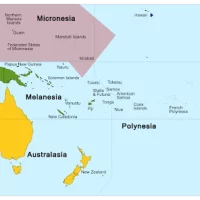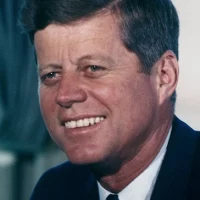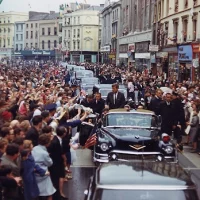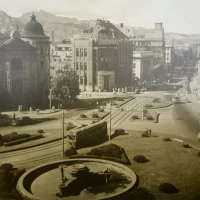The Federated States of Micronesia (FSM), sometimes known simply as Micronesia, consists of four states — Yap, Chuuk, Pohnpei and Kosrae – spread across the Western Pacific Ocean. They are north of Australia, south of Guam, west of the Marshall Islands and almost 2,500 miles southwest of Hawaii. Together, the states comprise 607 islands spread across a distance of… Read More "Unexploded Ordnance, Spam and Moonshine–Life as Ambassador to Micronesia"
After Fidel Castro ousted Cuban strongman Fulgencio Batista, expropriated American economic assets and developed links with the Soviet Union, President Eisenhower authorized the CIA in March 1960 to develop a plan to overthrow Castro. The agency trained and armed Cuban exiles to carry out the attack. Shortly after his inauguration, John F. Kennedy learned of the invasion plan, concluded… Read More "New President, Bad Plan: the Bay of Pigs Fiasco"
Relations between the U.S. and Ireland have traditionally been strong, thanks to common ancestral ties, history and shared values. Irish citizens immigrated to the thirteen Colonies, fought in the War of Independence and were among the first to drive cattle westward. Prompted largely by the Great Irish Famine, from 1820 to 1860 two million Irish… Read More "Ireland and the U.S.: The Best of Friends, Except When They Weren’t"
Harold Saunders: The Original “Peace Processor”
Born in Philadelphia, Harold “Hal” Saunders graduated from Princeton and Yale before serving in the U.S. Air Force. After working in a liaison role in the CIA, he began his career in diplomacy by joining the National Security Council (NSC) in 1961, where he advised on Middle East policy for over a decade and was…
The goal of public diplomacy (PD) is defined as supporting the achievement of U.S. foreign policy goals and objectives, advancing national interests, and enhancing national security. It is done by informing and influencing foreign publics and strengthening the relationship between the people of the U.S. and citizens of the rest of the world. In Washington,… Read More "Revolutionizing Public Diplomacy: U.S. Embassy Tokyo in the 1970s"
Throughout the Cold War, democratic and communist nations waged a “war of ideas.” The United States, seeking to expose the disadvantages of communism and to encourage democracy, engaged in numerous media campaigns targeted at influencing peoples in zones of Cold War conflict. The U.S. State Department, along with branches of the American military and other… Read More "Picturing the “War of Ideas”: Wartime Film-Making in Korea"
Soft Power in a Cold War: Challenges of Reaching out to the Soviets
The “Iron Curtain” was a term used to denote the efforts of the Union of Soviet Socialist Republics to block its citizens from contact with the West. It persisted from the end of World War II until the end of the Cold War. Throughout those decades, the U.S. endeavored to breach the Curtain and reach… Read More "Soft Power in a Cold War: Challenges of Reaching out to the Soviets"
A Sketch in Time: Cape Verde from an Ambassador’s View
The nation of Cape Verde, now known as Cabo Verde, is a group of islands located off the western coast of Africa. Its total territory is slightly larger than Rhode Island, and its citizens number just over 550,000 inhabitants. The United States and Cape Verde have deep historic links. Cape Verdeans have long been known… Read More "A Sketch in Time: Cape Verde from an Ambassador’s View"
Crisis Management: Occupation of USIS in South Korea, 1985
On May 25, 1985, seventy-three South Korean students barged into the United States Information Services (USIS) library in Seoul and began a three-day occupation. The students’ primary demand was an apology from the U.S. Ambassador, Richard L. “Dixie” Walker, as the representative of the American government, for the United States’ alleged role and complicity in… Read More "Crisis Management: Occupation of USIS in South Korea, 1985"
The 1991 Coup Against Mikhail Gorbachev
In August 1991, hard-line members of the Communist Party of the Soviet Union (CPSU) who opposed President Mikhail Gorbachev’s reforms and decentralization of government powers tried to overthrow him. The short-lived coup attempt is considered pivotal in the rise of Boris Yeltsin and the eventual breakup of the USSR. The attempt took place at a… Read More "The 1991 Coup Against Mikhail Gorbachev"





